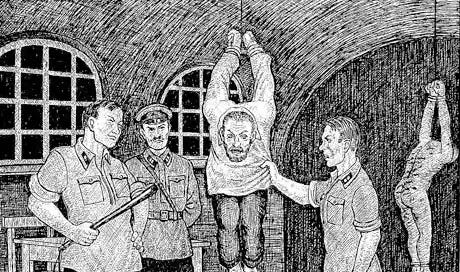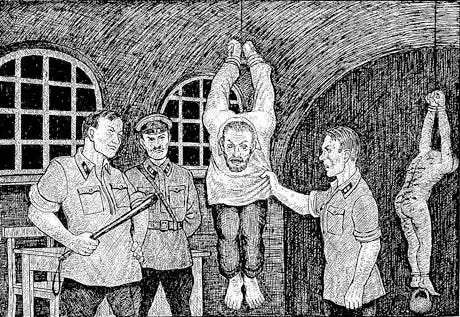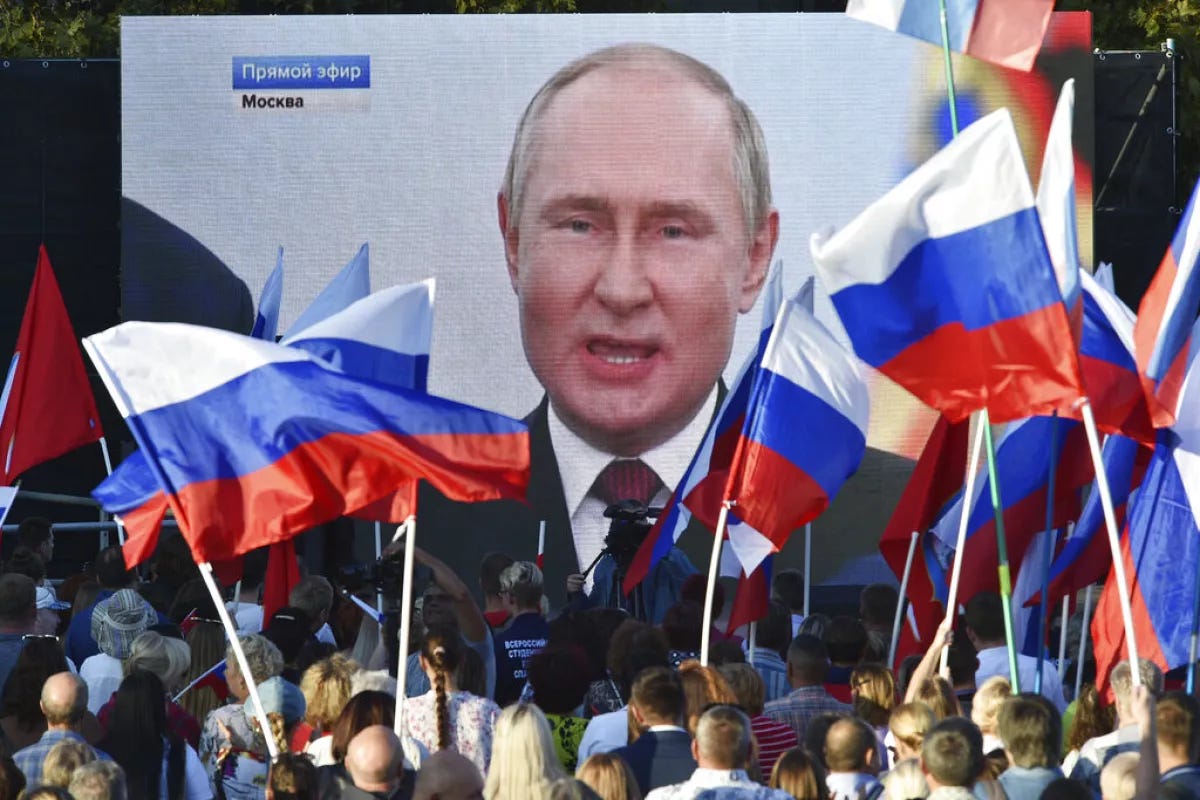Prisons may have far-reaching effects on culture, especially where incarceration is widespread. Russia has high rates of both imprisonment and homophobia. 66% of Russians don’t want gay neighbours. That’s increased from 58% in 1999. Almost everywhere elsewhere in Europe, homophobia has fallen. What explains Russian exceptionalism?
An important new paper by Maxim Ananyev and Michael Poyker suggests that Russia’s prisons may have fermented homophobia.
Trigger warning: this piece discusses physical and sexual torture.
Pre-20th Century Russians were actually quite tolerant
Sodomy was rarely punished, cases were usually dropped without trial or acquitted. Historian Irina Roldugina finds little evidence of homophobia in the late imperial Russian navy, this was not a subject of moral debate. Though Stalin criminalised homosexuality in 1935, convictions remained rare. They only surged after Gulags had taken hold.

Under Soviet totalitarianism, 60 million Russian men went through prisons
Since official staffing was low, informal governance emerged. The Vory criminal organisation established control over other inmates, labelled ‘muzhiki’ (commoners). ‘Petuhi’ (roosters) were the lowest class, having been raped and beaten by another inmate (often with the knowledge of the camp’s administration). They were ‘the lowest of the low, dehumanised and scorned’. Rape was used to impose hierarchy, through humiliation.
Other prisoners then distanced themselves from the petuhi so as to prevent social contamination. No man wanted to associated with the bottoms. This is much like India’s caste system of untouchability, where non-elites shunned Dalits in a bid to prevent pollution and maintain respectability.


To investigate the long-run effects on cultural attitudes, Maxim Ananyev and Michael Poyker examine the legacy of a massive amnesty. In 1953, after the death of Stalin, 1.2 million Gulag prisoners were released.
Gulags increased homophobia
In places with many ex-convicts, they coronated ‘thieves-in-law’ (vory v zakone), who were charged with upholding the criminal code. Amazingly, Ananyev and Poyker know all these years and exact locations. They find that in places more exposed to the 1953 amnesty, coronations increased. Prison culture was thus institutionalised across Russia.
Today, affected areas are much more homophobic - in terms of individual attitudes, homophobic slurs on social media, and hate crimes.
Neither under-development, religosity, sex ratios nor low trust drives these results. Prison per se seemed to increase homophobia.
Inmates’ relatives are especially homophobic (even after applying socio-economic and demographic controls). Russian men like Evgeniy Chebatkov have also attributed their own homophobia to the attitudes of their incarcerated parents.
Communities affected by the 1953 amnesty are also more inclined to celebrate prison culture, with more searches for the music of ‘Russian Chanson’.
But maybe all this is just the religious revival of Russian orthodoxy? The clash of civilisations? To examine the causal effect of incarceration, Ananyev and Poyker exploit longitudinal data from Australia. After imprisonment, men express far greater homophobia. No such effect is observed among women.
What a fantastic and fascinating paper by Ananyev and Pokyer! They offer compelling evidence that historic incarceration increased homophobia. But it does not end there.
Rape persists in Russia’s prisons
In 2012, Sergey Savelyev (ex-prisoner) leaked 40 gigabytes of prison videos and photos to human rights group Gulagu.net. This footage depicts widespread torture. Many former prisoners have also alleged systemic rape, ridicule and beatings. Violence is used to blackmail, intimidate and force confessions.
Akexei Makarov detailed that he was first tortured in 2020. After he refused to confess to a plot against the prison administration, three fellow inmates subjected him to sexual abuse:
For 10 minutes they beat me, ripped my clothes. And for, let's say, the next two hours they raped me every other minute with mop handles. When I fainted, they would splash me with cold water and throw me back onto the table.
Two months later, Makarov says he was raped again.
Central Asian migrants (like Uzbek Takhirjon Bakiyev) have also alleged anal rape. Though others are afraid to complain, because they want to keep working in Russia.

A mutiny recently broke out in Angarsk’s penal colony. Prisoners were pleading for help, slitting their wrists. The subjugated rebels were then beaten by guards who shouted (on video), “Get out of here, you faggot slut!”. Despite widespread allegations, prison officials are seldom held accountable. Sexual assault thus persists with impunity.

If sexual humiliation in Soviet gulags made Russians anti-gay, contemporary prisons may be having the same effect today.
Putin has institutionalised homophobia
Putin only embraced grassroots homophobia in the 2010s. Historian Dan Healey argues that Putin ignited homophobia to revitalise his popularity before the 2012 election. By championing social conservatism, Putin claimed the moral high ground, against a supposedly degenerate West.
In “The Light that Failed”, Krastev and Holmes likewise argue that Putin has tried to consolidate conservative support and maintain geopolitical supremacy by positioning Russia as defender of traditional values.
On television last year, Putin drummed up support for the invasion of Ukraine by denouncing Western values,
‘They sought to destroy our traditional values and force on us their false values that would erode us, our people from within, the attitudes they have been aggressively imposing on their countries, attitudes that are directly leading to degradation and degeneration, because they are contrary to human nature.’
In December 2022, the Duma extended the ‘gay propaganda’ law, forbidding all public portrayals of ‘non-traditional sexual relations’. Hate crimes against LGBT people continue with institutionalised impunity. There is “a license to harm”.
Child suicides are especially high in Russia, this too may be related.
In short, mass incarceration and institutionalised sexual violence as a mechanism of social control seem to have aggravated homophobia. The lowest of the low were shamed and sexually degraded. Others distanced themselves to prevent social contagion. Capitalising on pre-existing homophobia and political authoritarianism, Putin has now institutionalised and exacerbated hatred.















I had never even heard of this before. This is incredible, and extremely interesting. I wonder if other kinds of situations where lots of men are together, and are potentially subjected to sexual violence, also increase homophobia. Military mobilization a la world war 2, perhaps, or refugee camp situations.
Very interesting! I believe there's more homophobia among African Americans than white Americans, I wonder if that's related to the higher rates of incarceration too.